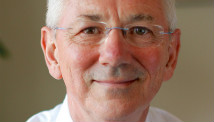SINGAPORE: Colliers International said private home prices are expected to remain relatively stable with marginal downside this year, thanks to the government's latest cooling measures imposed in January 2013.
In the face of mounting supply, rents are also expected to weaken this year.
According to a report by Colliers International, average monthly gross rents of luxury/super-luxury homes are expected to decline by up to a maximum of 10 per cent in 2013.
Meanwhile, Colliers said Singapore's residential property market saw a record breaking year in 2012.
This was despite noticeably subdued market activity in the fourth quarter of 2012, following recent property cooling measures.
Colliers said the home buying frenzy which started in January last year brought developers' sales volumes for 2012 to a record high as early as September.
This was boosted by a record number of new units released by developers as well.
4,283 new units were sold in the fourth quarter of last year, raising the primary sales volume to 22,127 units for the whole of 2012.
This breaks the previous record of 16,292 new units sold in 2010 by 35.8 per cent.
Meanwhile, developers launched a total of 21,511 new private homes last year, surpassing the previous highs of 17,710 units recorded in 2011 by 21.5 per cent.
But on a quarterly basis, developer launches and sales volumes dipped below 5,000 units last quarter due to the traditional year-end festive and holiday season and a weaker sentiment.
The number of new units released fell from an average of 6,023 units for the first three quarters to 3,441 in the last quarter of 2012.
Similarly, developer sales in the three months ending December 2012 fell 27.6 per cent on-quarter to 4,238 units from 5,916 units sold from July to September.
Meanwhile, mass market projects located in the Outside Central Region (OCR) dominated activities in the primary market in the last three months of 2012, contributing to 51.0 per cent of developer launches and 63.1 per cent of developer sales during this period.
Homes in the Rest of the Central region (RCR) contributed 31.5 per cent of island-wide launches and 22.8 per cent of developer sales in three months ending December 2012.
The Colliers report also stated that the narrowing price gap between mid-tier and mass market homes located in suburban areas saw home-buyers committing to 975 new units in 4Q2012, up 19.8 per cent on quarter from the 814 units sold in the third quarter of last year.
Launches and sales of new homes in the Core Central Region (CCR) meanwhile accounted for 17.5 per cent and 14.1 per cent of island-wide launch and sales volumes in 4Q2012.
Developer launches in that segment also slid 2.4 per cent from the third quarter while sales dropped 6.5 per cent on-quarter during the October to December period.
All three market regions (OCR, RCR and CCR) experienced higher rates of price growth in 2012, although the pace of price increase varied across the different regions.
- CNA/xq













